How We Do It
Our Process
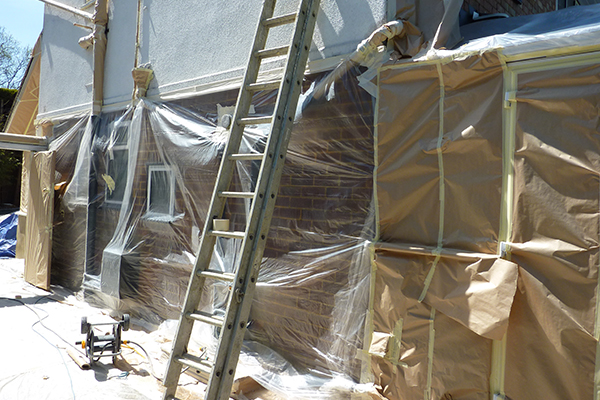
Masking Up
The very first process is the protection of all doors, windows, paths and surrounding areas by masking-up with tape, heavy-duty paper, polythene and dust-sheets. Great care is taken to protect plants, bushes and lawns.
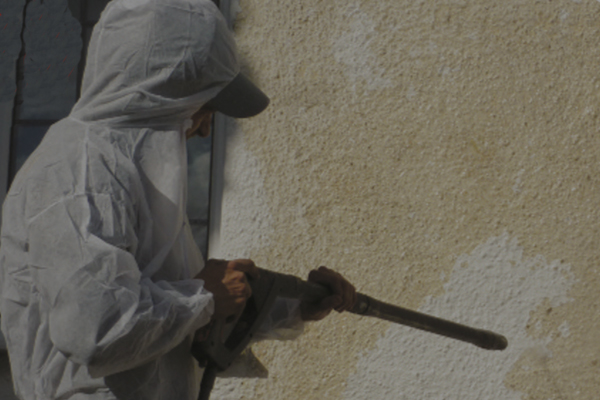
Preparations
Removal of all dirt, mould, algae, and loose paint by power-washing, wire-brushing, scraping or other mechanical methods. Where appropriate, treat surfaces with Biocide. This is strongly recommended in areas where growth has been removed.
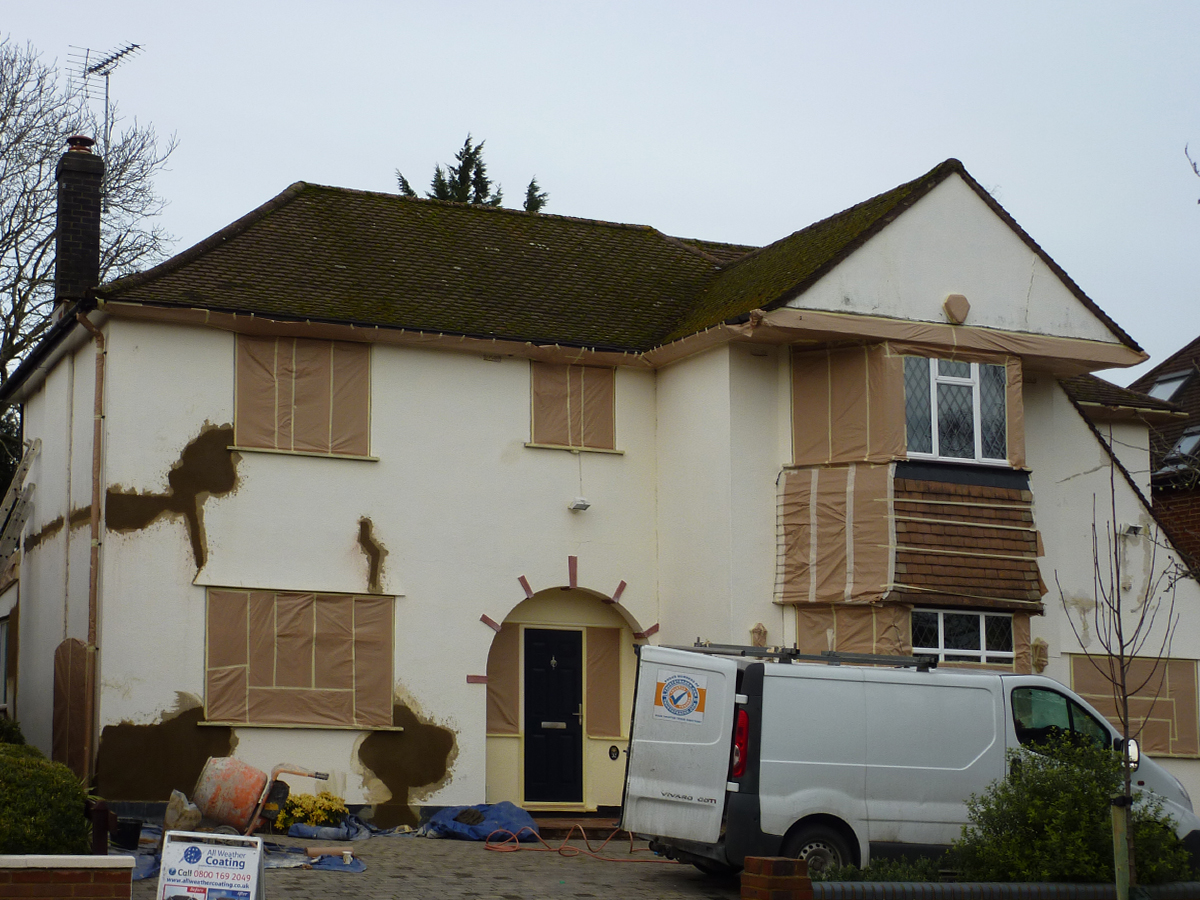
Restoration & Repair
The next stage is to repair all damaged and worn surfaces, reinstating with the appropriate materials. Damaged render is removed and all cracks hacked out. Great care is taken towards minimising the visibility of the repair.
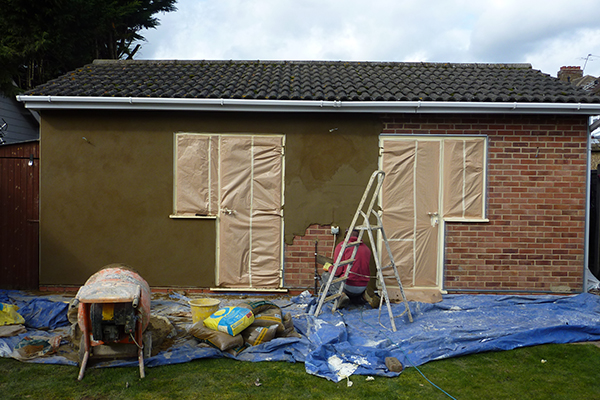
Sbr Bag
Rubbing
Unpainted pebble dash or brickwork can be bag rubbed with an sbr mortar mix which helps disguise imperfections and at the same time acts as a waterproofing agent.
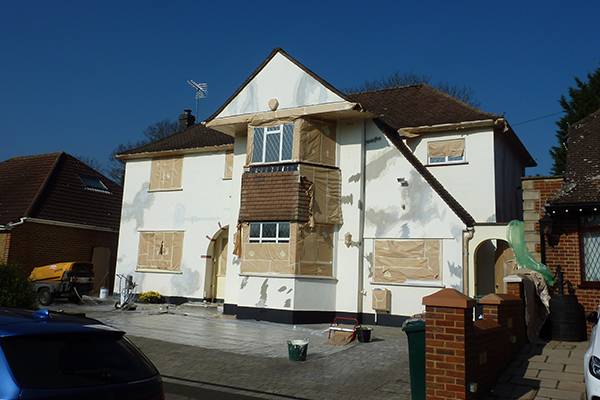
Primer
All weather primer is a high performance base coat designed to be used on masonary surfaces applied prior to the final application of the allweather top coat.
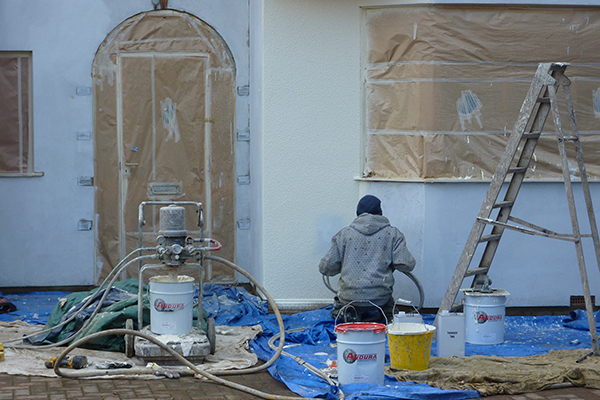
Application
Applied by using specialist spray equipment allweather masonary coating is sprayed onto surfaces a minimum of 1 litre of allweather coating is applied to every square metre which helps conceal any repair work and dries to a uniformed finish.
In More Detail
Preparation
Our preparation is meticulous.
- First, we protect paths and gardens with dustsheets.
- Then we carefully mask doors, windows and all other areas not being treated – even gutters – with paper and tape.
- Nothing is left to chance.
Repair
- Now we locate and correct all faults noted in the original survey.
- Hammer test render and pebbledash to locate hollow areas that need removed and cut back to sound surfaces.
- Cut out small cracks in otherwise sound areas and fill with epoxy resin.
- Treat large cracks with special bonding primers; fill with sand and cement mixture, then finish to match surrounding surfaces.
- Treat previously rendered and cut back areas with bonding primer and restore with two layers of sand and cement mixture.
- Match pebbledash finishes by spraying similarly sized grit into a still-wet surface.
Cleaning
- Once the repair work is completed, cleaning down can begin.
- Wire brush all surfaces to remove grime, pollution, moss and algae.
- Scrape and wire brush flaking paint from areas to be coated.
- Where brickwork is damaged, recreate surfaces using a sand/cement and adhesive mix.
- Rake out and replace damaged pointing.
- We use a system called ‘bagging’ to brush a mixture of sand/cement and adhesive on to the surfaces to cover small cracks and eliminate further spalling (flaking), still leaving the brick line as a feature.
- The same process is applied to the textured surfaces.
Waterproofing
- The next stage is to make all surfaces waterproof.
- On the prepared brickwork, render or pebbledash, we apply a slush coat made from a silicon-based waterproofing mixed with the final coating in the appropriate colour.
- We use a brush to work it into all the nooks and crannies.
Finish
Our preparation is meticulous.
- First, we protect paths and gardens with dustsheets.
- Then we carefully mask doors, windows and all other areas not being treated – even gutters – with paper and tape.
- Nothing is left to chance.
Rejuvenate Your Exteriors with White Masonry Paint
Brick by Brick Brilliance: A Colorful Journey to a Mould-Free Exterior Beauty can be added to an exterior with simple
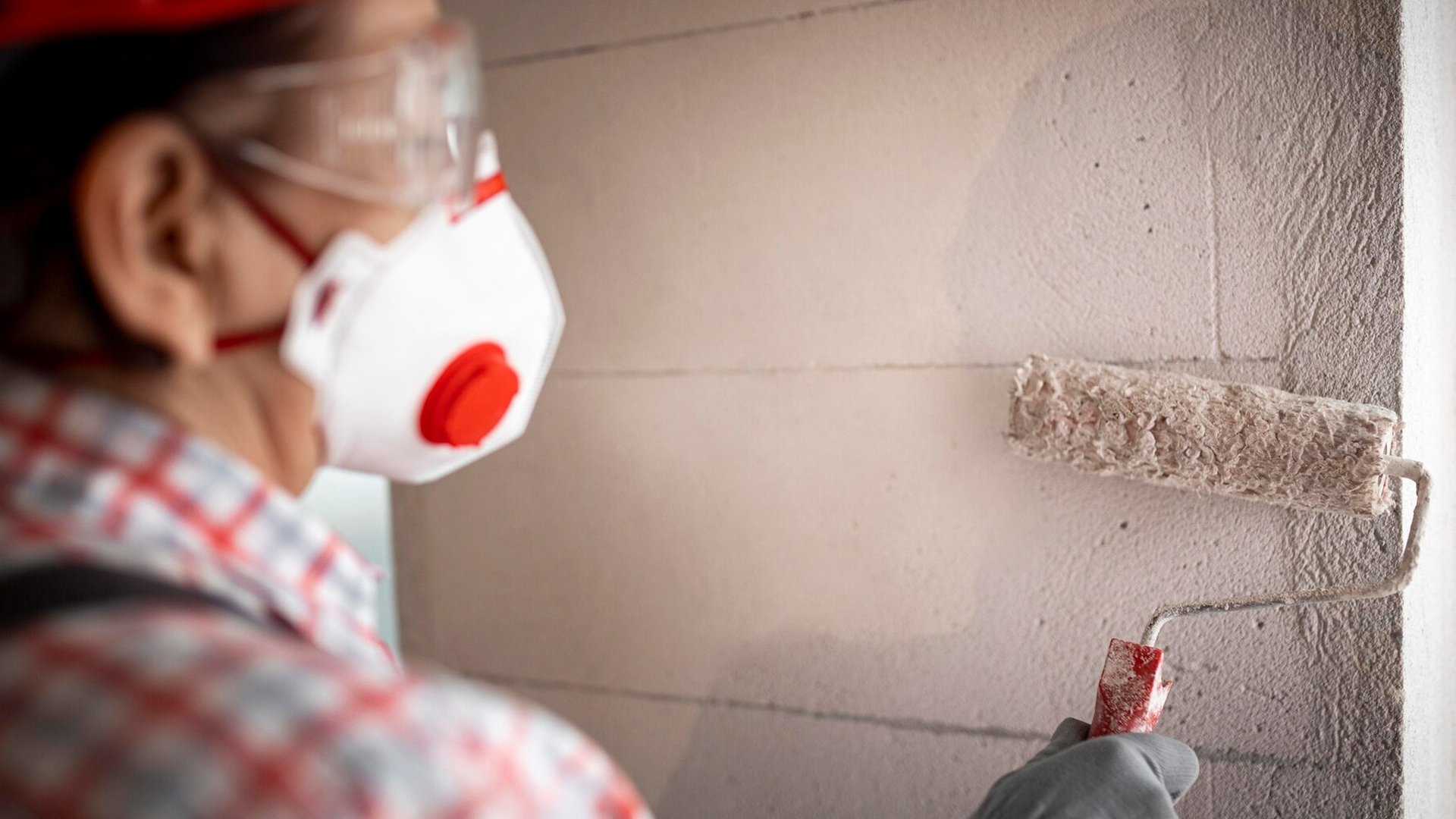
Wall Wonders: A Guide to Stunning Surfaces and Mould-Free Marvels
Every facade of every home hides a secret story; these stories are inscribed on walls that keep alive memories and
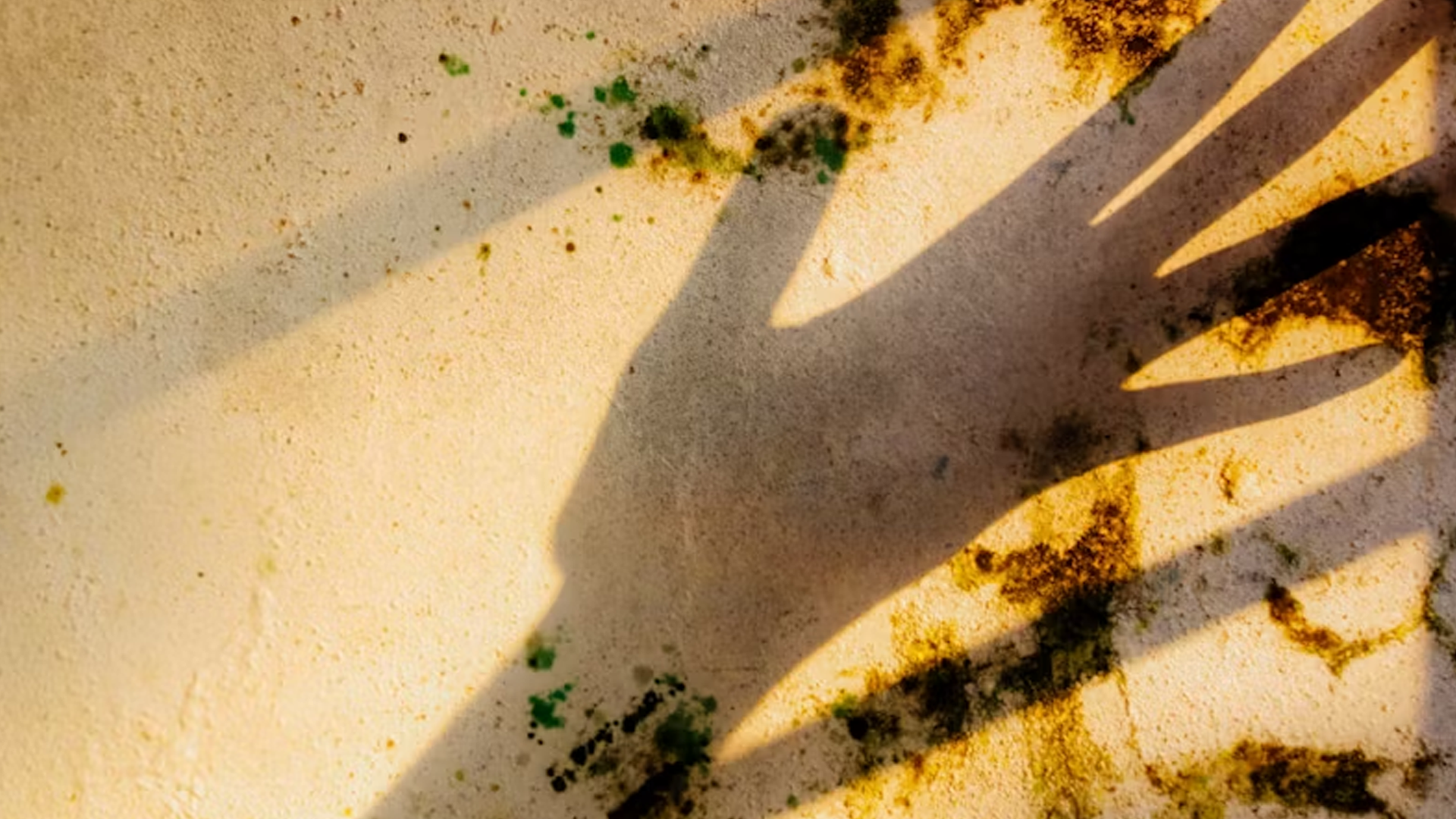
Brick Beauty: Transforming Walls with Paint, Render, and Style
The exterior of every building tells a story. Using simple techniques of external wall insulation, rendering, and a combination of
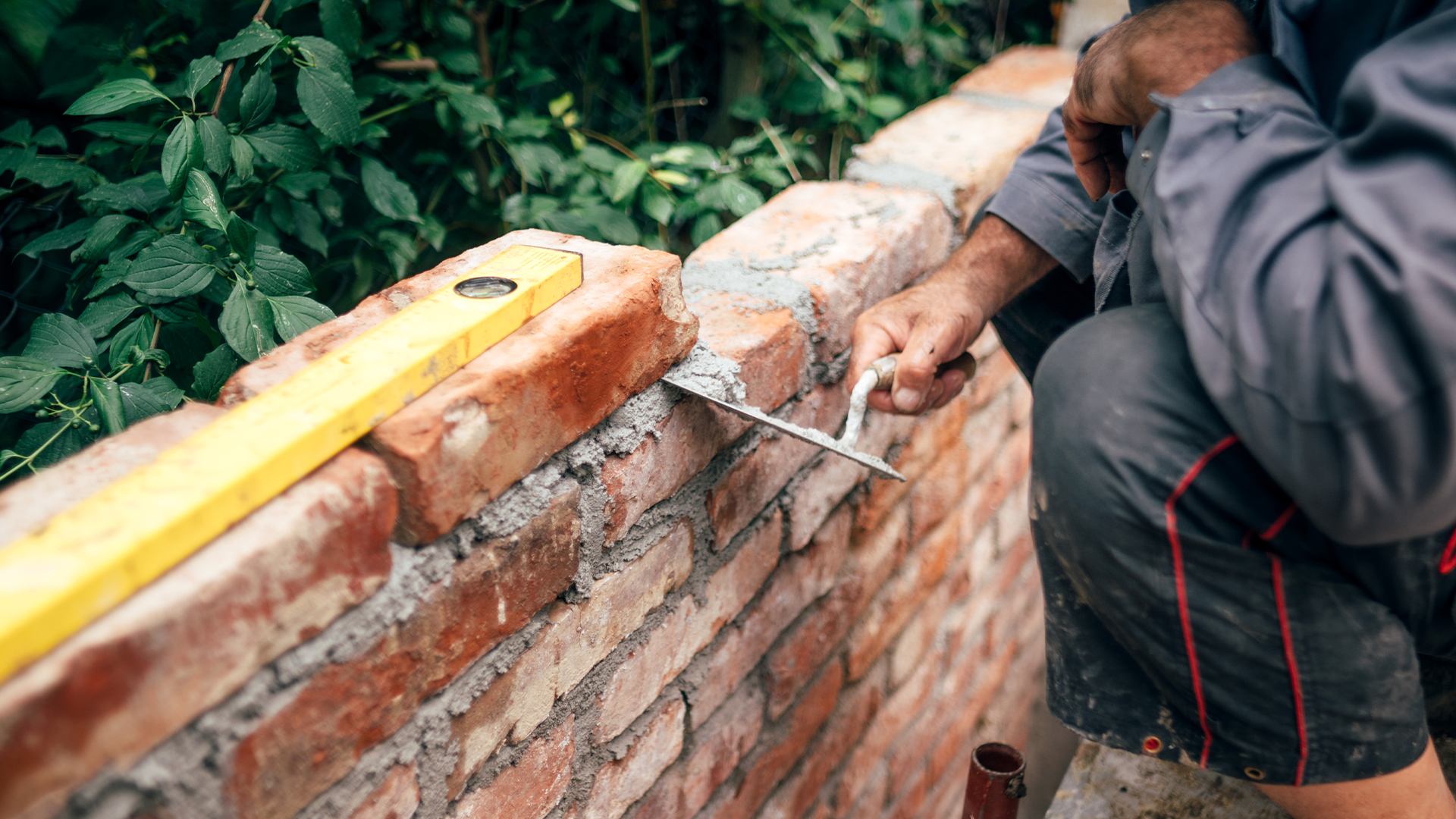
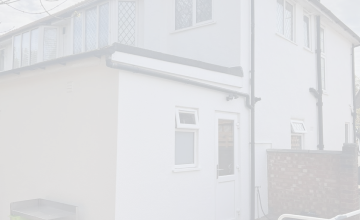
Our Expert Home Improvement Tips
Free Survey & Quote
We are fast and responsive. Fill out this form to get in touch and we will contact you very soon.



